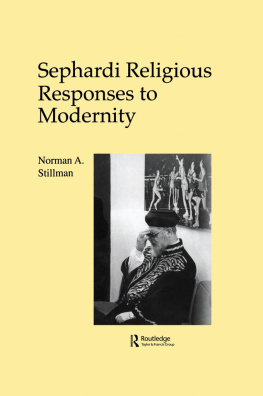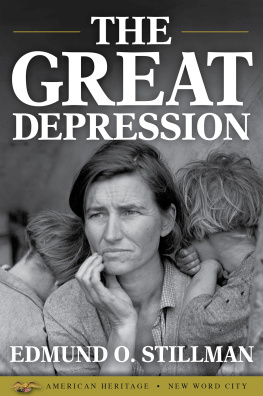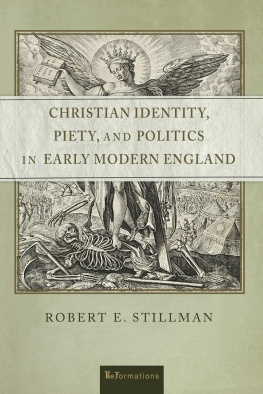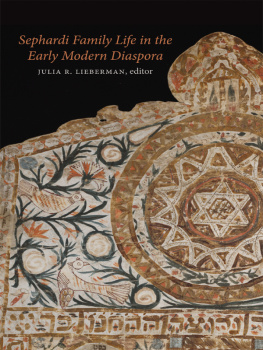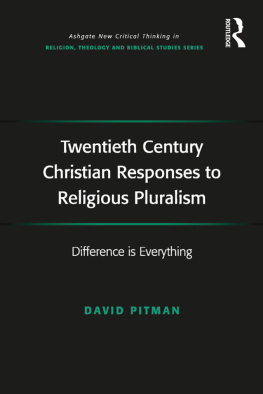Stillman - Sephardi religious responses to modernity
Here you can read online Stillman - Sephardi religious responses to modernity full text of the book (entire story) in english for free. Download pdf and epub, get meaning, cover and reviews about this ebook. City: London, New York, year: 2011, publisher: Taylor and Francis; Routledge, genre: Home and family. Description of the work, (preface) as well as reviews are available. Best literature library LitArk.com created for fans of good reading and offers a wide selection of genres:
Romance novel
Science fiction
Adventure
Detective
Science
History
Home and family
Prose
Art
Politics
Computer
Non-fiction
Religion
Business
Children
Humor
Choose a favorite category and find really read worthwhile books. Enjoy immersion in the world of imagination, feel the emotions of the characters or learn something new for yourself, make an fascinating discovery.
- Book:Sephardi religious responses to modernity
- Author:
- Publisher:Taylor and Francis; Routledge
- Genre:
- Year:2011
- City:London, New York
- Rating:4 / 5
- Favourites:Add to favourites
- Your mark:
- 80
- 1
- 2
- 3
- 4
- 5
Sephardi religious responses to modernity: summary, description and annotation
We offer to read an annotation, description, summary or preface (depends on what the author of the book "Sephardi religious responses to modernity" wrote himself). If you haven't found the necessary information about the book — write in the comments, we will try to find it.
Stillman: author's other books
Who wrote Sephardi religious responses to modernity? Find out the surname, the name of the author of the book and a list of all author's works by series.
Sephardi religious responses to modernity — read online for free the complete book (whole text) full work
Below is the text of the book, divided by pages. System saving the place of the last page read, allows you to conveniently read the book "Sephardi religious responses to modernity" online for free, without having to search again every time where you left off. Put a bookmark, and you can go to the page where you finished reading at any time.
Font size:
Interval:
Bookmark:

The Sherman Lecture Series
The Sherman Lecture Series is an annual series supported by the Sherman Trust on behalf of the School of Oriental and African Studies, London, UK.
Edited by Dr Tudor Parfitt and Professor John Hinnels, School of Oriental and African Studies, London, UK.
| Volume 1 | Sephardi Religious Responses to Modernity Norman A. Stillman |
Other volumes in preparation
| Volume 2 | The Interaction of Religion and Politics: The Case of Israel Charles S. Liebmann |
ISSN 1023-7917
This book is part of a series. The publisher will accept continuation orders which may be cancelled at any time and which provide for automatic billing and shipping of each title upon publication. Please write for details.

Published by Routledge
2 Park Square, Milton Park, Abingdon, Oxon, OX14 4RN
270 Madison Ave, New York NY 10016
Transferred to Digital Printing 2006
Copyright 1995 by Routledge
All rights reserved.
No part of this book may be reproduced or utilized in any form or by any means, electronic or mechanical, including photocopying and recording, or by any information storage or retrieval system without permission in writing from the publisher.
British Library Cataloguing in Publication Data
Stillman, Norman A.
Sephardi Religious Responses to
Modernity. (Sherman Lecture Series,
ISSN 1023-7917; Vol. 1)
I. Title II. Series
296.8
ISBN 3-7186-5699-X
ISBN 978-1-1343-6556-2 (Kindle)
Front Cover
Rabbi Ovadia Yosef in a moment of meditation (Photograph by Joel Fishman)
Publishers Note
The publisher has gone to great lengths to ensure the quality of this reprint but points out that some imperfections in the original may be apparent
Printed and bound by CPI Antony Rowe, Eastbourne
To our dear Jennie
Who has immeasurably enriched our familys life with her love and friendship
Gratitude may be, in the words of Robert Louis Stevenson, a lame sentiment, but its expression is a duty, and a pleasurable one at that. I am deeply grateful to the many individuals and institutions connected with the writing and publication of this book which is based upon my Sherman Lectures delivered at the School of Oriental and African Studies of the University of London, from 28 February to 3 March 1994.
My warmest thanks to Dr Tudor Parfitt, Director of the Centre for Jewish Studies at S.O.A.S. for having initially suggested my name to Professor John R. Hinnells, the Head of the Department of the Study of Religions at S.O.A.S. and the administrator of the lecture series. And of course, my thanks to Professor Hinnells for having invited me. Both he and Dr Parfitt were the most gracious and cordial of hosts. Naturally, thanks are due to the Sherman Trust for endowing the lectures. I was deeply honored to have been chosen to inaugurate the series.
My stay in London was kindly facilitated by Mr E.D. Ishag, who very generously provided me with comfortable accommodation. I have Mr Sidney L. Shipton of the Taali World Movement for a United Israel to thank for having made the initial contact with Mr Ishag. Dr Max Levene showed me many personal kindnesses while I was in London and contributed to making my stay there a pleasant one.
Over the years, my thoughts on the subject of Sephardi and Oriental Jewish religiosity and more particularly on the subject of Sephardi responses to modernity have benefitted greatly from conversations with Professors Menahem Ben-Sasson and Harvey Goldberg of the Hebrew University, Shlomo Deshen and Moshe Shokeid of Tel Aviv University, Dr Zvi Zohar of the Shalom Hartman Institute, and Rabbi Dr Marc D. Angel of the Spanish and Portuguese Congregation Shearith Israel of New York. My profound intellectual debt to a number of them will be obvious from the numerous citations of their works throughout this book.
Zvi Zohar was particularly kind in tracking down and sending me an elusive reference that I needed on the very day he returned home from several weeks of reserve military duty. I regret that his important new book Tradition and Change: Halachic Responses of Middle Eastern Rabbis to Legal and Technological Change (Egypt and Syria, 18801920) (Jerusalem, 1993) reached me only after my book had gone to press and thus could not be cited in the notes. It is, however, included in the Bibliography.
My colleague at Binghamton University, Professor Allan Arkush kindly read the original manuscript of the lectures and offered many valuable critiques and suggestions. In this and other matters pertaining to Jewish intellectual history, he has helped me to clarify my own thinking with his keen and incisive mind.
My graduate student, Mr Josef W. Meri, has been a tremendous help to me as a research assistant, assiduously tracking down with his mastery of computer skills the far-flung locations of source materials in a variety of languages.
As always, the staff of the Binghamton University Interlibrary Loan Office and its director, James J. Mellone, were most helpful, cheerfully expediting dozens of requests for rare bibliographical items not available to me in Binghamton.
Some of the research that went into this book was conducted as part of a broader research project under a grant from the Maurice Amado Foundation through its Sephardic Education Project. Final editing and seeing the manuscript through the press was done while on sabbatical leave from Binghamton University while in Israel as Lady Davis Fellow at the Hebrew University in Jerusalem and Dayan Fellow at the Dayan Center for Middle Eastern and African Studies at Tel-Aviv University in Ramat Aviv during the academic year 19941995.
Finally, it is customary for an author to acknowledge his indebtedness to his family for their loving support and encouragement. My case has always been special. My wife Yedida is my closest colleague. We have collaborated on research projects, books, and articles. Even on independent intellectual ventures, we consult a great deal with one another and this book is no exception. My acquaintance with various aspects of popular religion discussed in Chapter Four owes much to her. Indeed, it was she who first introduced me to the spirit of Sephardi religious life which I have tried to evoke in this book. Normally, I would end my acknowledgements here. But a word of thanks must be said to our children, Mia and Enan. During the time I spent preparing the lectures upon which this book is based, they were even more encouraging and helpful than usual. Both of them performed all sorts of tasks on my behalf assisting me with university administrative work, providing secretarial assistance, and zealously protecting me from interruptions. Mia sought out and photocopied several rare items for me from Brandeis University Librarys superb Judaica collection. I give thanks to Him Who turns the heart of the fathers to the children, and turns the heart of the children to their fathers.
N.A.S.
July 1995
Over the past two hundred years, the Jewish people like the world around it has undergone a radical transformation, or more precisely, a number of radical transformations. For the greater part of the eighteenth century, most Jews Ashkenazim and Sephardim alike lived in semi-autonomous, corporate communities amidst the larger societies around them. In some places, they were viewed as aliens or pariahs, confined to ghettoes or a pale of settlement, or at the least restricted from living in certain locales without special permission. In other places, they were protgs, protected subjects (
Next pageFont size:
Interval:
Bookmark:
Similar books «Sephardi religious responses to modernity»
Look at similar books to Sephardi religious responses to modernity. We have selected literature similar in name and meaning in the hope of providing readers with more options to find new, interesting, not yet read works.
Discussion, reviews of the book Sephardi religious responses to modernity and just readers' own opinions. Leave your comments, write what you think about the work, its meaning or the main characters. Specify what exactly you liked and what you didn't like, and why you think so.

